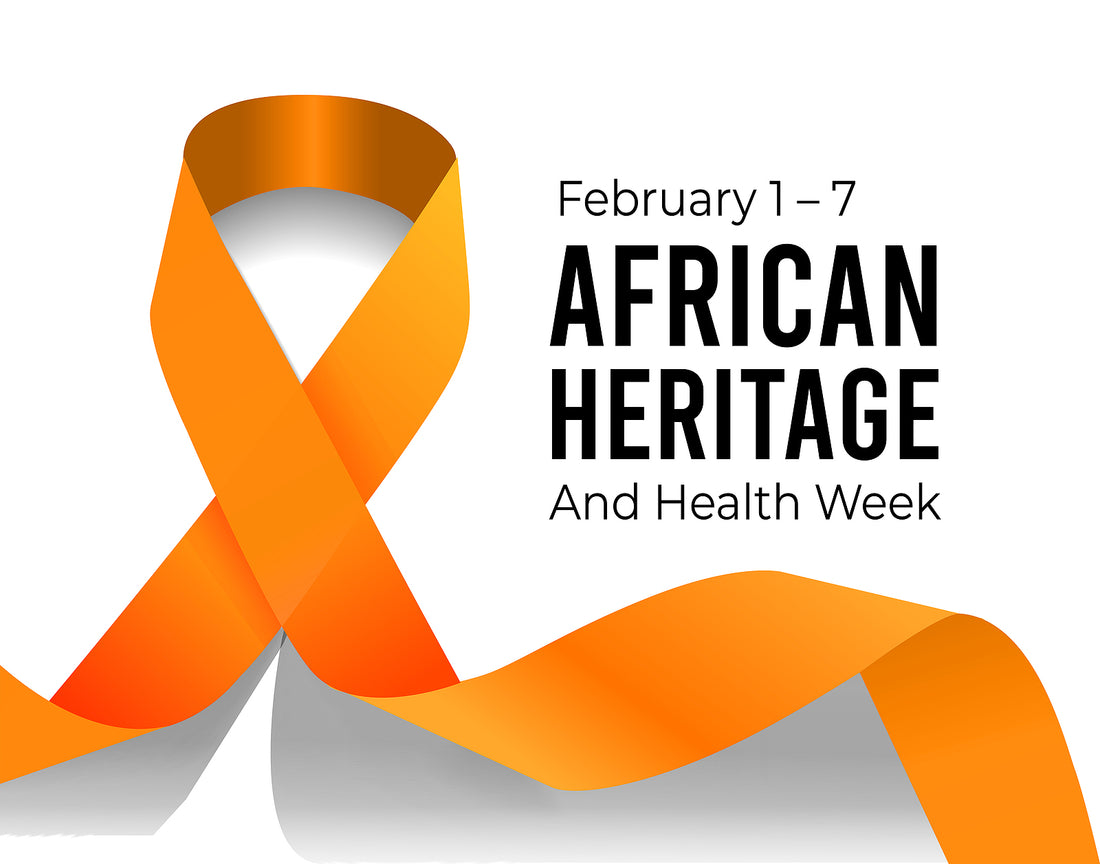What better way to start off Black History Month than to celebrate African Heritage and Health Week? Gather round to enjoy unique culinary dishes, festive music, or eye-catching festivals.
A collection of African, South American and the Caribbean, the celebration of African Heritage & Health Month embraces history, diversity, and solidarity.
To honor this week, let’s take a look at why heritage and health matters. We’ll share some ways you can also participate in African Heritage & Health Month.
The Heritage
Heritage is so important. It’s a way to remember the past, instill belief systems, and display a way of life. The older generation often reminds the younger of days past, the way life used to be, and wisdom they’ve accumulated throughout the years.
Africa is the second largest continent on the planet, consisting of 54 different countries. When brought to America, many tribes and communities of people brought colorful blends of art, food, clothing, morals, political views and cultures with them.
In many parts of African cultures, the idea of “self” is not one of independence, but an intertwining of the world around (1). This cultivates a deep sense of appreciation of life, with a willingness to work with nature, not against it.
During some of the early years of American history, people from many different parts of Africa were brought in and forced to work fields, farms, and factories. In a land far away from home, it was important to cling to family traditions, mentalities, and hopes in order to navigate their new life.
Many of those cultural treasures have continued to be passed down into modern life, and their heritage continues to be remembered today.
The Health
The traditional African diet is made up of a lot of beans, nuts, seeds, fruits, and vegetables. This diet can be great for lowering your risks of developing serious health conditions.
Some of the most common health concern among African Americans are (3):
- Diabetes: knowing your family’s risk can help spark change. Studies show families that are aware of their diabetic risks eat 5 times more fruits and vegetables than those who don’t (5).
- Heart disease: Among the leading causes of death, 60% of diseases that contribute to death involve cardiovascular disease (CVD) risk factors, such as high blood pressure, obesity, and diabetes (6).
- Obesity: The lack of adequate exercise paired with eating foods high in carbohydrates and sugars, and low in protein, vitamins or minerals increases the risk for obesity (7).
- Hypertension: Chronic high blood pressure can cause chest pains, vision problems, headaches, fatigue and confusion. One study showed that by the age of 55, 75% of African American men will develop hypertension (8).
- Lung disease: Chronic obstructive pulmonary disease (COPD) is an increasing health concern in the US. Risk factors such as smoking or other tobacco use, genetics, or air pollution increase the chances of developing lung diseases among African Americans (9).
- Kidney diseases: High blood pressure also plays an important role in the development of chronic kidney disease (CKD), increasing the need for kidney replacement threefold (10).
Other areas like pregnancy are also very important to keep in mind. A lot of development happens during the 40 weeks of gestation. Proper nutrition, exercise, and mental health care should be at the top of the priority list.
Ways to Celebrate
While there are lots of serious health topics to consider, there are many fun cultural ideas to help maintain a proper balance. To bring it all together, here are some fun ways you can get together to honor and celebrate African Heritage & Health Week:
- Try a new dish – Experiment with something new this week. If you need ideas, the African Heritage Diet (10) recommends having a variety of colorful fruits and vegetables, beans, nuts, yams, leafy greens, poultry and healthy oils.
- Attend a local event – Look up local events that might be happening in your area. Social media, the newspaper, word of mouth, or the library may be great resources to find out how to get involved in your community.
- Spend time with friends and family – It may be a good idea to discuss possible health concerns among your family. But don’t stop there! There are solutions out there that are both practical and attainable.
- Social media contests: Big influencers or other celebrities may host temporary contests, recipe challenges, virtual events or other classes in efforts to educate more people about African Heritage and Health Week.
Wrap Up
African heritage & health week is a time where people can get together, learn and share their experiences. It’s a time to reflect on our ancestors – their lives, their values, and their vision.
Some of the biggest health concerns affecting the African American community involve obesity, high blood pressure, diabetes, and heart disease. While there are different factors for these diseases, making healthy choices is not outside our grasp.
This week, take some time to learn about others. Eat a new food, or attend a local awareness event. You’d be amazed by what you take in, and possibly the new connections you make.
Are you looking forward to African Heritage & Health Week? Be sure to share this with your social media circle!
References & Disclaimers
(1) https://www.victoriafalls-guide.net/african-culture.html
(3)https://www.mibluesperspectives.com/2021/02/01/how-to-celebrate-african-heritage-and-health-week/
(4) https://ajph.aphapublications.org/doi/full/10.2105/AJPH.2005.077032
(5) https://www.ahajournals.org/doi/10.1161/CIR.0000000000000534
(6) https://www.ncbi.nlm.nih.gov/pmc/articles/PMC7335224/
(7) https://www.ahajournals.org/doi/full/10.1161/JAHA.117.007988
(8) https://www.atsjournals.org/doi/pdf/10.1164/rccm.201810-1909PP
(9) https://oldwayspt.org/traditional-diets/african-heritage-diet
✝✝This noted statement is based on independent research and is not necessarily the opinion of the author
